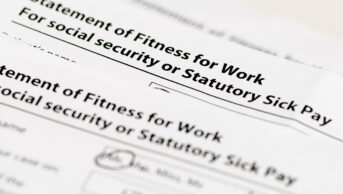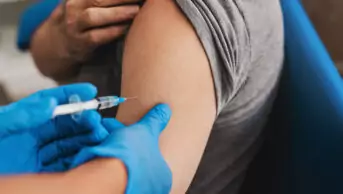
istockphoto.com
NHS England has made £15m available to fund clinical pharmacists to work in GP surgeries in England. The announcement in July 2015 comes less than a year after the British professional body for pharmacy, the Royal Pharmaceutical Society (RPS), began campaigning for the role of the general practice pharmacist to become a mainstay of primary care.
The funding will enable around 250 pharmacists to be employed directly by GP surgeries. The pharmacists will focus on improving how patients with long-term conditions use their medicines, and should help boost clinical capacity at a time when there is a major shortage of GPs, along with long waiting times and a drive to extend opening hours for patients. The pharmacists are due to be in post early in 2016.
Rather than being a handout the initiative requires groups of practices to put together a case for the funding. We strongly encourage them to do so.
Buy-in
The fact that the Royal College of General Practitioners (RCGP) came together with the RPS to campaign for the scheme probably swayed decision-makers at NHS England, the national commissioning board. In March 2015, the two professional organisations produced a joint proposal suggesting that pharmacists could form part of the solution to the workforce crisis faced by GPs. Some correspondents to The Pharmaceutical Journal welcomed the greater diversity of career options that the deal could bring to pharmacists; others held concerns that the move might prove detrimental to the community pharmacy network.
Yet it is a testament to the strength of the proposal and the work of both organisations that, only four months after the joint statement was released, NHS England agreed to fund the initiative. Health Education England, which is responsible for funding NHS training in England, the RCGP, the British Medical Association trade union’s GP committee and the RPS will help the commissioning board select the pilot sites.
Although the original proposal did not stipulate a single model through which pharmacists could work in GP surgeries, the NHS England pilot is explicit: pharmacists are to be employed by one or more practice.
The Pharmaceutical Services Negotiating Community, which negotiates with the government on behalf of community pharmacy contractors, issued an optimistic statement citing the potential for the scheme to promote collaboration between practice-based pharmacists and local community pharmacists. Pharmacy Voice, a community pharmacy lobbying group, was also largely positive, while stressing that this development should not “put other important developments for community pharmacy on the back-burner”. One community pharmacy multiple Well, formerly The Co-operative Pharmacy, described the initiative as a missed opportunity by NHS England. It suggested that failure to fund minor ailment consultations in community pharmacy had contributed to the need for new care models in general practice.
Concerns about the community pharmacy sector being deprioritised within the health economy in England are unfounded. In June 2015, a £7.5m cash injection was committed by the government to roll out access to summary care records to all community pharmacies in England. Both initiatives represent a vote of confidence in pharmacy and position pharmacists to help more patients take their medicines safely and effectively. Indeed, pharmacists employed in local GP surgeries could provide invaluable links with community pharmacies and enable even closer working in future.
Pay-off
Described by NHS England as a pilot scheme, the new initiative will help GP surgeries pay the cost of employing pharmacists over the next three years with a view to them becoming established posts. In year one, 60% of the cost is covered by NHS England, dropping to 40% in year two and 20% in year three, with the salary being covered fully by the practice from year four. This is a sensible approach if the clinical pharmacist roles are to be embedded in the fabric of general practice. If the scheme assumed the full cost of the pharmacists, this would reduce the number of positions that might be funded and practices may not have a vested interest in continuing the posts after the end of the pilot. Moreover, some GP surgeries already employ clinical pharmacists, which is proving cost effective, and so this initiative is about enabling the concept to be taken up in other areas.
NHS England is recommending that practices work together to bid jointly for funding. The GP surgeries need to be able to show they are having difficulty recruiting clinical staff and that they are committed to continuing the pharmacist posts in future. Since each site will need to put both their energies and money behind the bid, the pharmacists appointed should find themselves a welcome addition to the team. And they won’t be working in isolation; the plan is for each pilot area to have a senior clinical pharmacist supporting up to five clinical pharmacists who may work across a number of sites.
Effective clinical supervision and mentorship will be essential for clinical pharmacists new to general practice, in particular those who need to train to become independent prescribers, which is considered a necessary skill for the role. The British pharmacy regulator, the General Pharmaceutical Council, conducted a survey in 2013 that found that only 61% of pharmacist prescribers reported having prescribed in the previous 12 months. Around a quarter had never written a prescription. So the initiative could provide new opportunities for those clinical pharmacists who hold an independent prescribing qualification but have not yet had the opportunity to use it.
GPs must understand the value of this opportunity, and make an application to help deal with capacity issues and waiting times. This new way of working will benefit patients, so practices should waste no time in applying.


